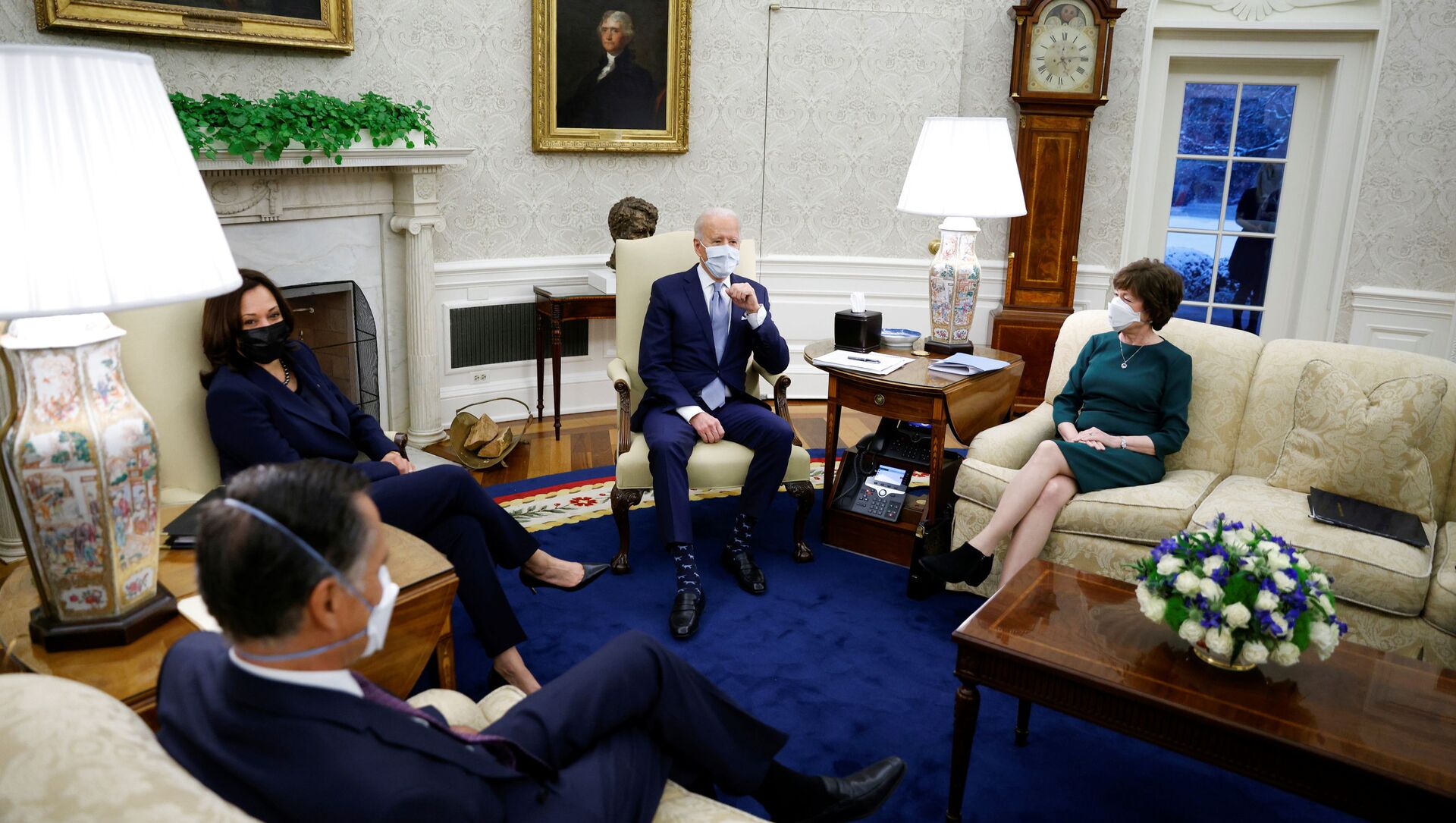"It was a very good exchange of views," Collins said on Monday moments after the meeting. "I wouldn't say that we came together on a package tonight... but what we did agree to do is to follow up and talk further at the staff level and amongst ourselves and with the president and vice president on how we can continue to work together on this very important issue."
Collins was part of a group of ten Republican senators that met with Biden and Vice President Kamala Harris in the Oval office Monday evening for a two-hour meeting on a new COVID-19 relief package. She said they presented Biden with the provisions proposed in their $600 billion COVID-19 package. She added that she is hopeful Congress will pass a bipartisan coronavirus relief package.
Democrats have proposed a $1.9 trillion COVID-19 relief package.
I joined a group of 10 Republican Senators in writing to President Biden today to propose an alternative Covid-19 relief bill capable of garnering bipartisan support and to request a meeting to discuss it in detail.https://t.co/aenxAwE65K pic.twitter.com/dHIp4YU4yu
— Sen. Susan Collins (@SenatorCollins) January 31, 2021
Biden, who took office on January 20, had expressed hope that his COVID-19 relief plan would get adequate support from the Republicans in the Senate where the Democrats had a majority of just one. However, should negotiations stall, the president has cautioned that the Democrats will use the reconciliation process available to them to push his relief plan through the Senate.
Reconciliation is a process that allows the Senate to pass tax and spending legislation with a bare majority vote. Democrats and Republicans both have 50 seats in the Senate now, with Vice President Kamala Harrris having an additional vote to break the tie.
Congress passed the first Coronavirus Aid, Relief and Economic Security (CARES) Act under the then Trump administration in March 2020, dispensing roughly $3 trillion as paycheck protection for workers, loans and grants for businesses, and other personal aid for qualifying citizens and residents. After that, Democrats in the House of Representatives got into a messy partisan fight with the Republicans in the Senate on a successive relief plan despite millions of Americans remaining jobless and being unable to pay for mortgage, rent, and sometimes even food. The Trump administration subsequently got a $900 billion relief passed under a bipartisan effort, its last, in December.



